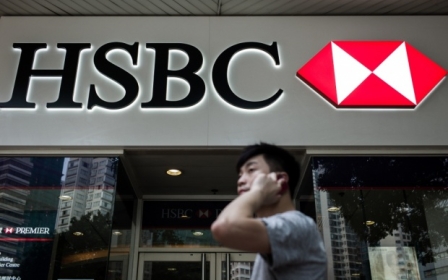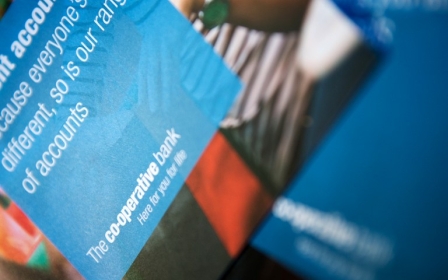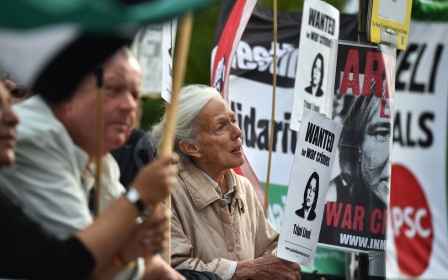Barclays case threatens to expose secrets of bank de-risking

In recent years, the phenomenon of de-risking by banks (sometimes referred to as de-banking) has affected a range of banking clients and never been far from the headlines. Embassy accounts closed by HSBC, remittance companies (notably those linked to Somalia) closed by Barclays, foreign diplomatic missions at the United Nations closed by JP Morgan Chase, and charities (particularly, although not exclusively, those with Muslim connections) closed by HSBC and Cooperative Bank.
Many individuals have also been affected including Oriental carpet sellers, Syrian students and refugees, and former high-ranking politicians. Some, such as Ummah Welfare Trust and Friends of al-Aqsa have taken their cases to the media, while others such as Somali remittance company Dahabshiil have taken theirs to court, the latter earning a temporary stay of execution whilst it found another account provider.
Victims of de-risking have, in general, been provided with very similar explanations: the account holder in question is deemed by the bank to be outside its "risk appetite" following ongoing risk evaluations and will face closure within one or two months. Rarely is any further justification proffered.
Publicly, the authorities have been unwilling to get meaningfully involved. HM Treasury is on record as saying that "Individual commercial decisions of financial institutions are informed by their own compliance and risk policies and are not ones that the Treasury or the regulator can or should determine." Some limited action has been taken although impact on the fundamental issue has been negligible.
Following the Somali remittance closures by Barclays, in January 2014 the UK government set up an action group on cross-border remittances, an initiative that appears to have run out of steam having, according to its website, last met in October 2015. Just prior to the 2015 UK general election, then-economic secretary to the Treasury Andrea Leadsom chaired a roundtable of those affected by bank de-risking.
At an international level, the Financial Action Task Force, global standard setter for anti-money laundering and counter-terror finance, the G20, and the Financial Stability Board, led by Governor of the Bank of England Mark Carney, have also indulged in public hand-wringing on this issue. De-risking is not just impacting individuals and charities, it also affects global trade and isolates smaller nations from the financial system, but, thus far, the banking community seems unwilling to relent.
Against this backdrop, whilst news of further de-risking is unsurprising, the recently disclosed revelation that Syrian-born businessman and philanthropist Wafic Said has been served notice of the closure of his bank account, and those of his family and charitable trust, is particularly striking. Unlike previous victims of de-risking, Mr Said, now living in Monaco with a reported wealth of £1.5bn, has the resources to mount a forceful legal challenge and, it appears, is not going to treat this matter lightly, having now reportedly hired PR firm Bell Pottinger and filed proceedings against Barclays, seeking an explanation in the High Court in London.
For observers of this saga of exclusion, the court documents may offer a tantalising glimpse into what influences the risk assessment of a big bank. The judgment issued by Mr Justice Henderson in the case brought by Dahabshiil, also against Barclays, in 2013 revealed the internal rationale for terminating the accounts of Dahabshiil and other remittance companies that failed to meet the "amended eligibility criteria" of their "risk-based approach". What might a judgment in Said vs Barclays reveal?
At this stage one can only speculate as to why Barclays made its decision. Did the combination of political connections, history of defence deals and residency in a "tax haven" lead to the account closures? Certainly Mr Said has associations with two categories of account holder that increasingly struggle to maintain access to financial services: defence companies and so-called Politically Exposed Persons (PEPs) – commonly defined as individuals who have, or have had, a high political profile, or hold, or have held, public office, along with members of their immediate families and close associates.
Furthermore, off-shore tax havens have also become subject to greater scrutiny, particularly in the run-up to the UK prime minister’s Anti-Corruption Summit in May and his determination that "the UK must not become a safe haven for corrupt money from around the world". None of this is to suggest that Mr Said deserves the treatment he has suffered, but a "risk-based" determination, predicated on a cocktail of traditional "red flags," may well have led Barclays to its decision.
Since the financial crisis of 2008, from which most banks were directly, or indirectly, bailed out by the taxpayer, the restrictions on financial access faced by many who can ill-afford this frustration have ratcheted ever-tighter. The banks are certainly not entirely to blame for their decision making. Regulations have added to their cost of business and, as shareholder-focused entities, they will choose profit over charity unless incentivised by governments to do otherwise. Repeated (and mostly deserved) penalties and fines have also created an understandably risk-averse culture inside banks; a culture that is unlikely to change unless governments, caught between their electorate and a private sector with which they seem loath to interfere, are willing to intervene.
This latest, publicised case of de-risking represents, perhaps, a moment when this issue might be taken to a new level. The combination of the high-profile legal action brought by Mr Said, well-connected in political and business circles, and the high-level political attention brought to this matter via the recent intervention of the unlikely partnership of Clare Short and Andrew Mitchell, both former UK international development ministers who have been vocal in highlighting the restrictions applied to charities seeking to deliver aid to Syrian refugees, means that this issue might perhaps finally get the genuine, high-level attention it deserves.
- Tom Keatinge is director of the Centre for Financial Crime & Security Studies (CFCS) at The Royal United Services Institute (RUSI).
The views expressed in this article belong to the author and do not necessarily reflect the editorial policy of Middle East Eye.
Photo: The headquarters of the British bank Barclays is seen in the Canary Wharf district of London on 15 February, 2016 (AFP).
New MEE newsletter: Jerusalem Dispatch
Sign up to get the latest insights and analysis on Israel-Palestine, alongside Turkey Unpacked and other MEE newsletters
Middle East Eye delivers independent and unrivalled coverage and analysis of the Middle East, North Africa and beyond. To learn more about republishing this content and the associated fees, please fill out this form. More about MEE can be found here.





